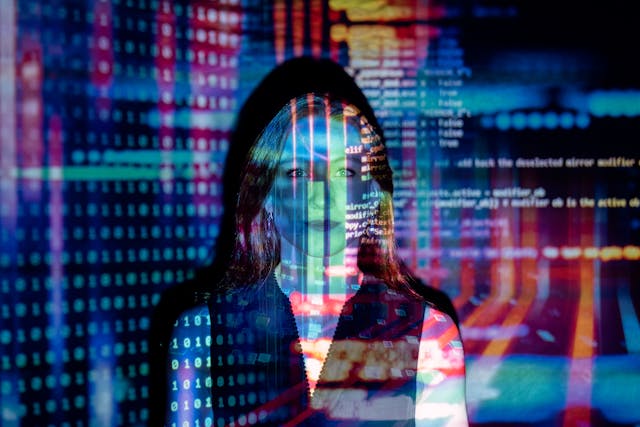Artificial intelligence is advancing at a breakneck pace, fundamentally reshaping industries, job roles, and the very nature of work. With companies like Meta and Salesforce reportedly shifting focus toward AI-driven development, and many businesses—including individual entrepreneurs—turning to AI tools like GPT, Claude, and Cursor instead of hiring additional staff, the reality is clear: AI isn’t just augmenting jobs—it’s actively replacing them.
The risks of AI-driven job displacement are real. A report from McKinsey Global Institute predicts that AI and automation could displace up to 375 million workers by 2030. But history—and even science fiction—tells us that adaptation is the key to survival.
Lessons from Science Fiction: The Future of Human-AI Collaboration
Isaac Asimov’s short story Profession offers an interesting perspective. In the story, humans are “programmed” into specific careers. However, the protagonist is deemed defective because he cannot be programmed like the others. The twist? His so-called defect is actually his strength—he has the ability to think creatively and solve new problems that don’t yet have predefined solutions.
This echoes the shift happening today. AI excels at optimizing existing systems, automating tasks, and replicating patterns—but it struggles with true creativity, innovation, and novel problem-solving. As AI continues to shape the workforce, professionals will likely split into two categories:
- AI Operators: Those who master AI tools to improve efficiency, automate tasks, and recreate existing systems.
- Innovators & Creators: Those who leverage AI to break new ground, tackle unexplored frontiers, and develop technologies we haven’t even imagined yet.
The key question isn’t whether AI will take jobs—but rather, which new skills will set professionals apart?
The Value of Creativity and Problem-Solving in an AI-Driven World
Consider software development. A decade ago, coding ability alone was a competitive advantage. Today, AI can write functional code within seconds. Tools like GitHub Copilot and OpenAI’s Codex allow developers to generate entire applications with minimal manual input. The demand for basic coding is diminishing, but the demand for problem solvers who can create something entirely new is soaring.
- Gartner predicts that by 2026, 80% of coding tasks will be handled by AI.
- LinkedIn’s Future of Work Report (2023) highlights that “creative thinking” and “complex problem-solving” are the two most in-demand skills.
- A Harvard Business Review study found that teams that incorporate AI for automation but prioritize human-led creativity are 50% more likely to outperform their competitors.
This shift doesn’t mean developers are obsolete—it means their value lies in how they think, not just in what they do.
AI Is Not the Enemy—Ignorance Is
It’s easy to fear automation, but the real danger isn’t AI itself—it’s refusing to evolve alongside it. In past industrial revolutions, those who upskilled and adapted thrived, while those who resisted change faded into irrelevance.
How to Future-Proof Your Career in an AI-Dominated Landscape
- Master AI tools. Instead of fearing automation, learn how to use AI-powered platforms to increase productivity.
- Develop problem-solving skills. The ability to navigate novel challenges will be your strongest asset.
- Focus on creativity. AI is great at replicating past solutions but lacks genuine innovation.
- Stay ahead of trends. Keep an eye on emerging technologies like AI agents, autonomous research systems, and evolving business models.
- Cultivate adaptability. The future will favor those who can pivot and embrace change.
The Future Is Built by Those Who Embrace Change
AI isn’t here to replace creativity—it’s here to amplify it. Professionals who understand this shift and position themselves as innovators rather than mere task executors will shape the next era of work.
The choice is clear: adapt, leverage AI, and lead the way—or be left behind.
What are your thoughts on this AI-driven evolution? Are you adapting or resisting?
